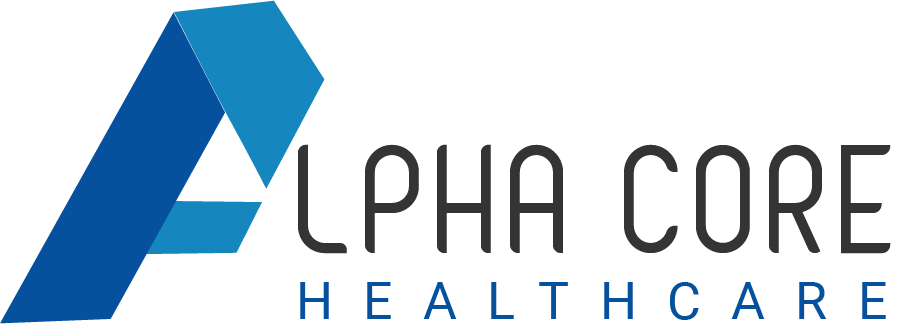Top Insurance Credentialing Services for Healthcare Providers
- Published: July 01, 2025

Insurance credentialing is the lifeblood of healthcare revenue cycle management, but it continues to be one of the most complicated and time-consuming processes for healthcare providers. The Best Insurance Credentialing Services can revolutionize your practice’s productivity, minimize administrative hassle, and speed up your journey to patient care and revenue realization.
What Are Credentialing Services for Insurance and Why Do You Need Them?
Insurance credentialing services are professional services that manage the tedious task of enrolling healthcare providers with insurance networks. These services handle everything, from initial application submission to ongoing maintenance of provider credentials on multiple insurance plans.
Credentialing typically involves the process of verifying education, training, licensure, work experience, and malpractice insurance. Healthcare providers are not able to receive reimbursement from insurance companies without being credentialed appropriately, so these services are essential for practice sustainability.
Healthcare providers who attempt to tackle credentialing internally typically encounter significant problems like extended processing times, excessive rates of application denials due to incomplete documentation, and the need for full-time personnel to handle ongoing requests.
Key Features That Define the Best Insurance Credentialing Services
Comprehensive Network Coverage
The best insurance credentialing companies have extensive network coverage, such as major commercial insurers like Aetna, Cigna, Blue Cross Blue Shield, UnitedHealthcare, and Humana. They also accommodate Medicare, Medicaid, and specialty networks relative to your specialty practice.
Groundbreaking services maintain relationships with over 500 insurance networks, enabling your practice to optimize patient access and revenue streams from various payer sources.
Technology-Driven Solutions
Contemporary credentialing solutions leverage innovative technology platforms that have real-time application tracking, automated document handling, and streamlined communication channels. These electronic systems reduce processing times and avoid mistakes that usually accompany manual processes.
Cloud-based credentialing systems provide secure document storage, automatic reminder for deadlines, and extensive reporting features that keep providers informed through the entire process.
Dedicated Account Management
More advanced credentialing services offer single points of contact, account managers who understand your unique practice requirements and specialty requirements. These account managers are single points of contact for you, delivering individualized service and expert guidance at every step.
Experienced account managers can negotiate through convoluted insurance mandates, quickly resolve application issues, and ensure compliance with evolving regulatory necessities.
How to Choose the Best Insurance Credentialing Services for Your Practice
Evaluate Turnaround Times
Standard credentialing procedures take 90-180 days, but premier insurance credentialing companies typically have quicker turnaround times as a result of established insurance network connections and streamlined submission processes.
Look for providers who provide realistic estimates of turnaround times and maintain regular communication regarding application status and potential delays.
Quantify Success Rates and Experience
Well-established credentialing companies should demonstrate high approval rates and extensive experience with processing cases through various medical specialties. Request references at similar practices and inquire how they’ve performed with specific insurance networks relevant to your practice.
15+ year-old companies tend to have fine-tuned the process and have solid contacts with insurance network representatives.
Technology Integration Capabilities
Today’s medical practice requires credentialing services that are completely integrated into existing practice management systems and electronic health records. The best services offer API access and data synchronization functionality that offers automatic data entry removal and maintains updated provider information across systems.
Transparent Pricing Structure
Quality credentialing services should have clear, upfront pricing without hidden fees. Compare pricing models like per-application fees, monthly retainer agreements, and all-inclusive. service packages to identify the most cost-effective solution for your practice size and needs.
Advantages of Working with Professional Credentialing Services
Rapid Revenue Generation
Professional credentialing services will reduce time-to-market for new providers, enabling them to schedule patients and bring in revenue sooner. The time savings typically recoups the investment in the service within the first quarter of operation.
Reduced Administrative Overhead
Credentialing outsourcing keeps the burdensome task of handling cumbersome application processes away from your internal staff, allowing your employees to focus on patient care and core business activities.
Increased Accuracy and Compliance
Professional credentialing experts know about evolving regulatory requirements and insurance network needs, avoiding application denials by a significant extent and ensuring ongoing compliance.
Ongoing Maintenance and Support
Elite insurance credentialing services provide ongoing maintenance in the way of license renewals, insurance modifications, and re-credentialing support to provide ongoing network access.
Common Challenges in Insurance Credentialing and How Professional Services Address Them
Documentation Needs
Insurance networks require extensive documentation including education verification, board certifications, employment history, and malpractice insurance. Professional services have extensive checklists and relationships with verification agencies to submit thorough, correct submissions.
Application Complexity
Each insurance network has unique application requirements, forms, and submission processes. Credentialing experts know these differences and can easily navigate complex requirements.
Follow-up and Communication
Credentialing applications will typically need to be pursued and accompanied by additional documentation. Professional services maintain specialist advisory staff to attend to these requirements in a timely manner without delays.
What to Expect During the Credentialing Process
Initial Consultation and Assessment
Professional credentialing agencies begin with comprehensive consultations in order to learn about your practice requirements, specialty needs, and desired insurance networks. The consultation helps create customized credentialing plans that cater to your business objectives.
Document Collection and Verification
Services will request documents needed like medical licenses, DEA certificates, board certifications, education transcripts, and malpractice insurance details. They help with verification processes and ensure that all documents meet insurance network requirements.
Application Submission and Tracking
Professional services deliver the applications to selected insurance networks and provide regular updates while in the review process. They remain in communication with the representatives of the networks to clarify any issues or additional requirements on time.
Approval and Network Participation
Upon approval, credentialing services pave the way for the final phases like fee schedule negotiation, contract signing, and system implementation to facilitate smooth network participation and billing activities.
Maximizing ROI from Your Credentialing Investment
Strategic Network Selection
Work with your credentialing service to identify the most lucrative insurance networks based on your patient population, specialty concentration, and revenue opportunities. Prioritize networks that align with your practice development objectives.
Ongoing Relationship Management
Maintain regular interactions with your credentialing service to deal with changing business requirements, new provider additions, and growth opportunities with networks.
Frequently Asked Questions About Insurance Credentialing Services
How long does it typically take to credential insurance?
Typically, the credentialing process takes 90-180 days, depending on the insurance network and application complexity. The most reliable insurance credentialing companies may be able to shorten this process with established relationships and streamlined submission protocols.
What documents are needed for insurance credentialing?
Common mandatory documents include medical licenses, DEA certificates, board certifications, transcripts of education, residency completion certificates, verification of work history, malpractice insurance certificates, and personal references. Professional credentialing services provide complete lists for each insurance network.
May I process credentialing myself instead of utilizing professional services?
Although self-credentialing exists, it is time-consuming, requires very close knowledge of insurance requirements, and involves ongoing maintenance of credentials. Professional services, however, get quicker approvals and better results due to their experience and connections.
How costly are professional credentialing services?
Credentialing service charges are based on networks’ quantity, complexity, and service level requirements for application. Typical charges are $200-800 per network application, although some services offer comprehensive packages or monthly retainers.
What happens if my credentialing application is denied?
Professional credentialing services work on application issues and resubmit corrected applications when necessary. They have established rapport with network representatives to discover denial reasons and clear up issues expediently.
Do I have to credential for each insurance network individually?
Yes, each network of insurance has a distinct credentialing application and approval process. The Top Insurance Credentialing Services can process multiple network applications simultaneously to provide maximum efficiency and minimize processing time.
How do I need to keep my credentialing information up-to-date?
Credentialing information typically must be renewed every 2-3 years and must be maintained on a continuing basis for license renewals, insurance renewals, and address changes. Professional services provide ongoing maintenance support to facilitate ongoing network participation.
Connect With Us
Have questions about credentialing, enrollments, or healthcare management? Our team is here to help.
- (302) 304-8686
- hello@alphacorehealthcare.com
- 3524 Silverside Rd, Wilmington, DE 19810, United States
Feel free to reach out to us. Required fields are marked *
Quick links
Contact Us
- (302) 304-8686
- hello@alphacorehealthcare.com
- 3524 Silverside Rd, Wilmington, DE 19810, United States
Copyright © 2026 Alpha Core Healthcare, All rights reserved.
